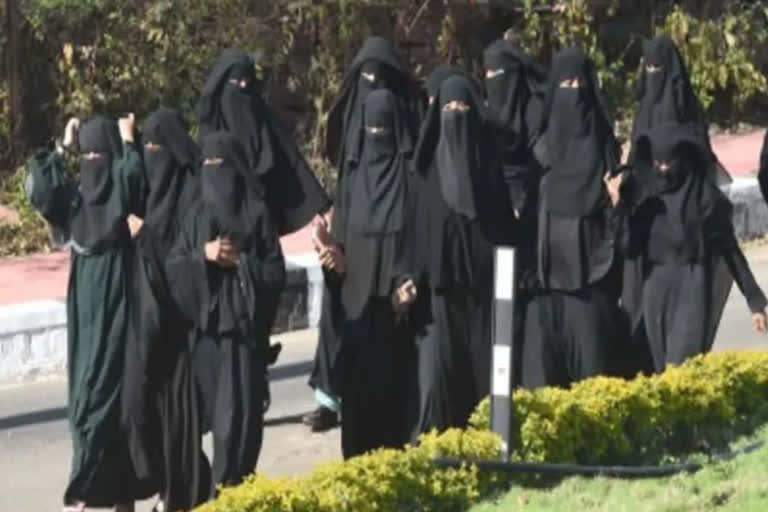New Delhi: In the ongoing hearing in the petitions challenging the Hijab ban in educational institutions in Karnataka, the state government told the Supreme Court on Wednesday that if everything in Islam was accepted then the question of the "essential test" will be defeated.
"If we are to accept whatever is said in the Quran to be essential, it will defeat the tests of essentiality. One test is whether it will change the nature of religion. Safest test. If every aspect of Quran, with great reverence, may be religious, but not essential," Karnataka's Advocate General Prabhuling Navadagi submitted to the bench comprising Justice Hemant Gupta and Justice Sudhandhu Dhuliya.
Wednesday was the 9th day of hearing by the bench in the matter. The Petitioners' side had concluded its arguments on Tuesday and the Bench is now hearing State counsels. The AG submitted there are a lot of women who do not wear hijab.
"In countries like France and Turkey women are prohibited to wear hijab and yet Islam is flourishing in those countries," the AG said to which Justice Gupta responded: "I know a former Lahore High Court judge. They had two daughters and a son. I had never seen those girls wearing hijab. AG said that it is too generic to say that if you do not follow everything, punishment will follow, not everything can be characterised as a part of religion.
Also read: BJP's Patra posts Rahul's pic with hijab-clad girl, accuses him of appeasement; Cong hits back
He said that the state took the decision to bring the students together as it was not a case of one student coming and wearing hijab but a group of students coming and chanting slogans, which was very intimidating. "As if we didn't have other problems to solve, now children were not attending classes," said AG.
"Action of state in issuing the circular must be viewed from the language used in it. All it says is follow rule 11. So it cannot be impugned on other grounds. In the absence of challenge of Rule 11, the school code will prevail...It is a case of school versus students not government versus students. They have not established an essential right," the AG submitted.
ASG KM Natraj also appearing for the state argued that hijab was "neither prohibited nor promoted, it is just not a part of the uniform and that should be adhered to." He said Article 14 is applied in the matter i.e equal protection of laws so that no one is treated differently, and students as a whole make a class.
Justice Dhuliya said that equal protection of law is not applied like that. ASG said that secular symbols in a secular institution can not have religious symbols. "Question is not hijab. We say follow the uniform," said ASG. "Tomorrow a person might say Burqa is my fundamental right. But when you go to the airport, you have to show your face. A Hindu can say performing Hawan is a fundamental right but can say allow hawan at India Gate or in court. All religious rights must be balanced," said ASG. The court will continue hearing the matter on Thursday.




